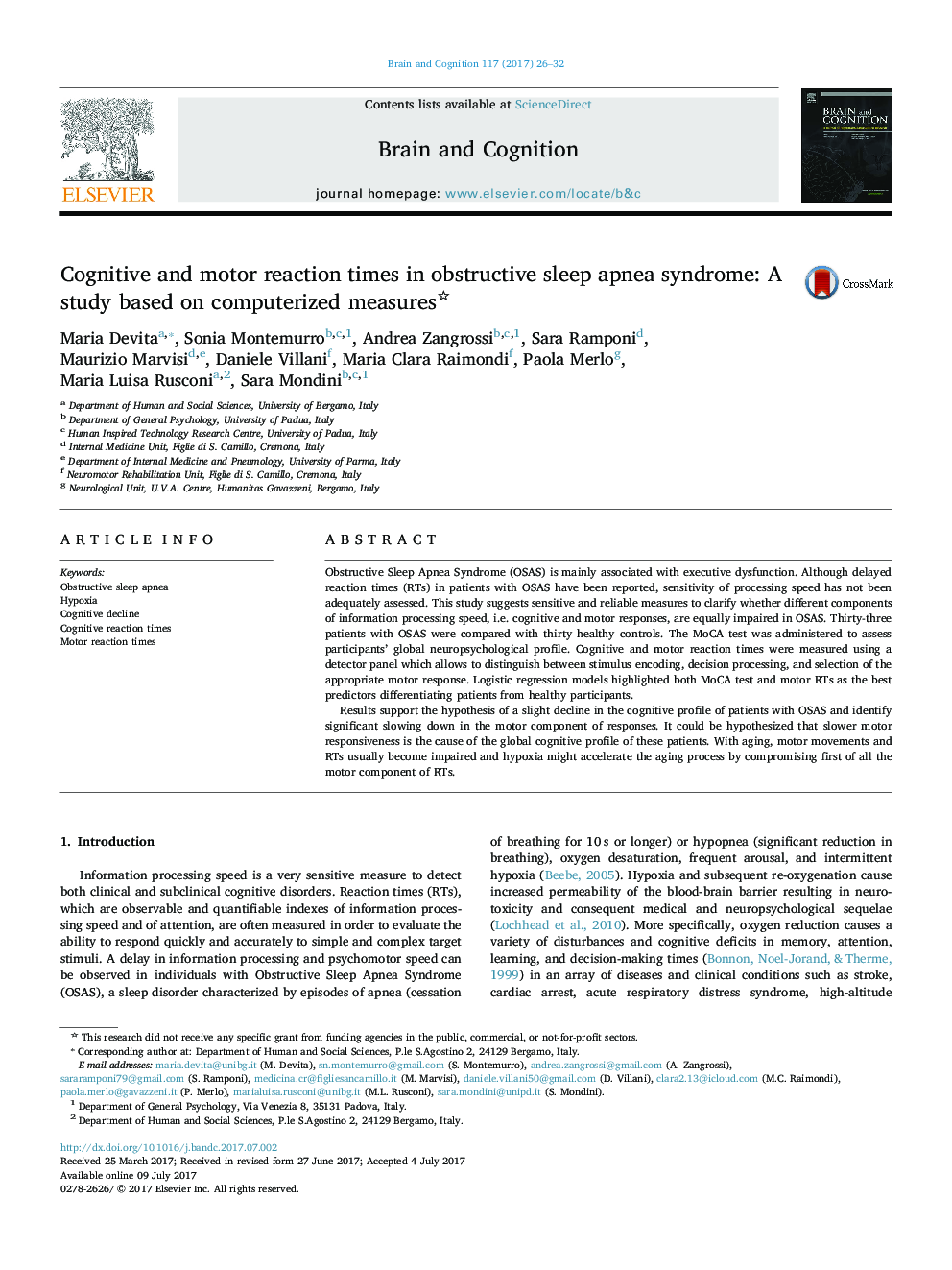| Article ID | Journal | Published Year | Pages | File Type |
|---|---|---|---|---|
| 5041062 | Brain and Cognition | 2017 | 7 Pages |
â¢Obstructive sleep apnea syndrome (OSAS) globally impairs cognitive functioning.â¢Patients with OSAS show slowness in the “motor” component of reaction times, not in “cognitive” reaction times.â¢Hypoxia might accelerate the normal aging processes by compromising the motor component of reaction times.
Obstructive Sleep Apnea Syndrome (OSAS) is mainly associated with executive dysfunction. Although delayed reaction times (RTs) in patients with OSAS have been reported, sensitivity of processing speed has not been adequately assessed. This study suggests sensitive and reliable measures to clarify whether different components of information processing speed, i.e. cognitive and motor responses, are equally impaired in OSAS. Thirty-three patients with OSAS were compared with thirty healthy controls. The MoCA test was administered to assess participants' global neuropsychological profile. Cognitive and motor reaction times were measured using a detector panel which allows to distinguish between stimulus encoding, decision processing, and selection of the appropriate motor response. Logistic regression models highlighted both MoCA test and motor RTs as the best predictors differentiating patients from healthy participants.Results support the hypothesis of a slight decline in the cognitive profile of patients with OSAS and identify significant slowing down in the motor component of responses. It could be hypothesized that slower motor responsiveness is the cause of the global cognitive profile of these patients. With aging, motor movements and RTs usually become impaired and hypoxia might accelerate the aging process by compromising first of all the motor component of RTs.
